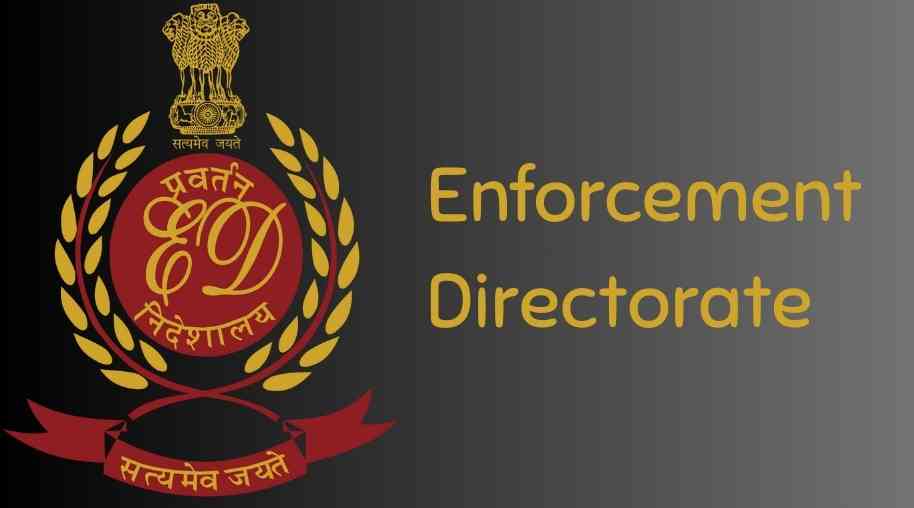ED Full Form-Enforcement Directorate
by Shashi Gaherwar
0 2374
Enforcement Directorate (ED): Role, Powers, and Impact on Financial Investigations
Introduction
The Enforcement Directorate (ED) is a premier financial investigation agency in India, responsible for enforcing laws related to money laundering, foreign exchange violations, and economic offenses. Operating under the Department of Revenue, Ministry of Finance, the ED plays a crucial role in maintaining financial integrity and tackling illicit financial activities.

This article explores the history, role, powers, key functions, and impact of the Enforcement Directorate in combating financial crimes.
History and Establishment of the Enforcement Directorate
The Enforcement Directorate (ED) was established in 1956, initially focusing on enforcing the Foreign Exchange Regulation Act (FERA), 1947. Over the years, its jurisdiction expanded with the introduction of new laws, including:
- Foreign Exchange Management Act (FEMA), 1999
- Prevention of Money Laundering Act (PMLA), 2002
- Fugitive Economic Offenders Act, 2018
These legal frameworks have strengthened the ED’s ability to investigate and prosecute financial crimes effectively.
Key Functions of the Enforcement Directorate
The Enforcement Directorate is primarily tasked with investigating and prosecuting offenses related to money laundering, foreign exchange violations, and economic fraud. The key functions include:
- Enforcing the Prevention of Money Laundering Act (PMLA), 2002
- Investigates money laundering offenses and attachment of proceeds of crime.
- Files cases against individuals and entities involved in laundering illicit funds.
- Coordinates with financial intelligence units and international agencies.
- Enforcing the Foreign Exchange Management Act (FEMA), 1999
- Investigates foreign exchange violations and illegal foreign asset holdings.
- Takes action against individuals and companies violating FEMA provisions.
- Imposes penalties for unauthorized financial transactions.
- Investigating Economic and Financial Crimes
- Identifies and prosecutes large-scale financial frauds and corporate crimes.
- Assists in extradition and prosecution of economic offenders who flee India.
- Attachment and Confiscation of Proceeds of Crime
- Freezes and confiscates properties acquired through illegal means.
- Works with banks and financial institutions to track illicit financial activities.
Powers of the Enforcement Directorate
The ED has significant powers under PMLA and FEMA to investigate, seize assets, and prosecute offenders. Some of its key powers include:
- Summoning Individuals for Interrogation
- The ED can summon any person related to a financial investigation and record statements under PMLA and FEMA.
- Attachment of Properties and Assets
- ED can attach and seize assets derived from illegal financial activities, preventing their use in further crimes.
- Arresting Offenders
- Under PMLA, ED has the authority to arrest individuals involved in money laundering and financial crimes.
- Conducting Raids and Searches
- The agency has the power to raid premises, seize documents, and freeze bank accounts related to financial offenses.
- International Cooperation
- Works with Interpol, Financial Action Task Force (FATF), and foreign agencies to investigate cross-border financial crimes.
High-Profile Cases Investigated by ED
The ED has been involved in several high-profile cases involving politicians, business tycoons, and corporate entities. Some notable cases include:
- 2G Spectrum Scam
- Investigated money laundering in the telecom sector.
- Vijay Mallya Case
- Probed financial fraud and fund diversion by the fugitive businessman.
- Nirav Modi & PNB Scam
- Investigated a multi-billion dollar fraud case in the banking sector.
- Sahara India Case
- Looked into allegations of money laundering and illegal financial dealings.
Challenges Faced by the Enforcement Directorate
Despite its crucial role, the ED faces several challenges in conducting financial investigations:
- Legal and Bureaucratic Hurdles
- Complex legal frameworks sometimes delay investigations and prosecutions.
- International Coordination
- Cooperation with foreign authorities can be slow, affecting extradition and asset recovery.
- Political Allegations
- The ED has often been accused of selective targeting and political influence in high-profile cases.
- Evolving Financial Crimes
- The rise of cryptocurrencies, digital transactions, and shell companies makes it harder to track illegal money flows.
Impact of the Enforcement Directorate on Financial Investigations
The Enforcement Directorate plays a crucial role in maintaining financial transparency and curbing economic offenses. Its impact includes:
- Strengthening India's anti-money laundering framework.
- Recovering billions of rupees in fraud and tax evasion cases.
- Enhancing international cooperation against financial crime.
- Creating deterrence against money laundering and corruption.
The Enforcement Directorate (ED) is a key institution in India's financial and legal ecosystem, tasked with investigating and prosecuting financial crimes. Despite challenges, its role in combating money laundering, economic frauds, and financial terrorism is undeniable. Strengthening ED’s resources and improving legal frameworks will further enhance its effectiveness in tackling financial crimes.
As global financial crimes become more sophisticated, the ED's role will continue to evolve, ensuring financial security and economic integrity in India and beyond.
Further Learning Resources
If you’re passionate about building a successful blogging website, check out this helpful guide at Coding Tag – How to Start a Successful Blog. It offers practical steps and expert tips to kickstart your blogging journey!
For dedicated UPSC exam preparation, we highly recommend visiting www.iasmania.com. It offers well-structured resources, current affairs, and subject-wise notes tailored specifically for aspirants. Start your journey today!

Share:









Comments
Waiting for your comments